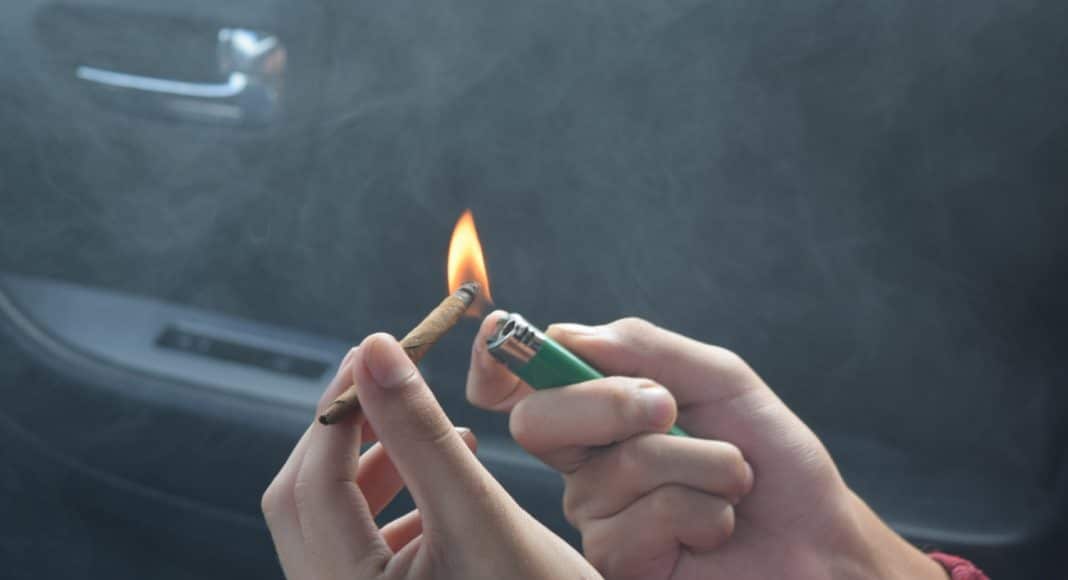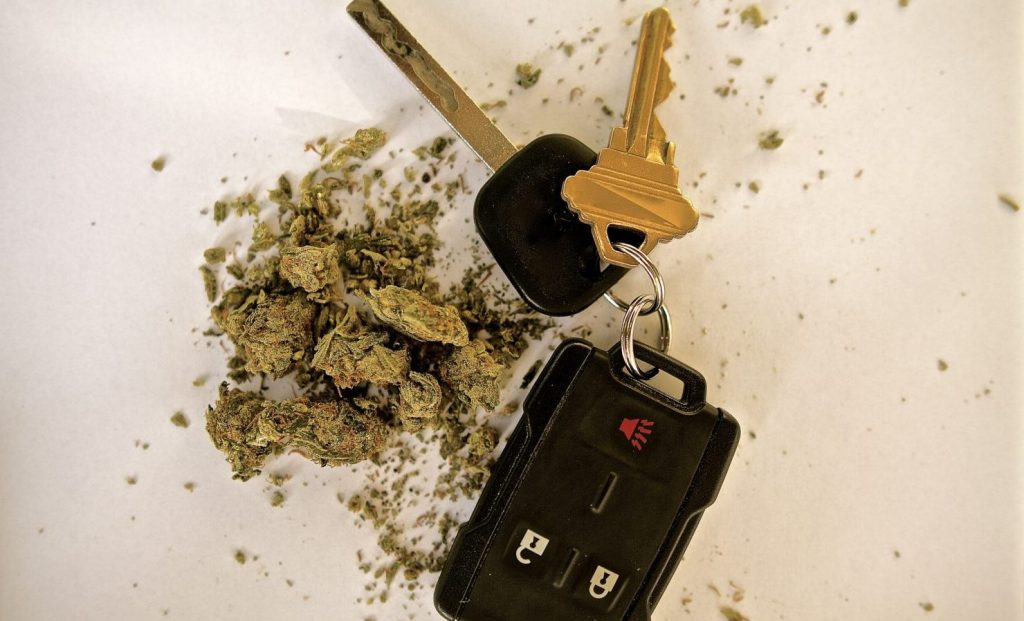You are here
Home 🌿 Recreational Marijuana News 🌿 Driving High On Marijuana Might Not Be As Dangerous As Prescription Drugs 🌿Driving High On Marijuana Might Not Be As Dangerous As Prescription Drugs

DUID cases involving marijuana get tossed out of court a lot of times in legal states simply because impairment cannot be proven. Unfortunately, these punishments cannot be avoided in zero tolerance states.
Ever since states started legalizing marijuana for this reason and that, law enforcement agencies, politicians and anyone else dead set against a pot-progressive America has stood up against the herb. They’re worried that it might lead to an uptick of dangerous drivers on the road. Yep, stoned driving is the new enemy of the nation’s sober soldiers, even though there is no actual proof that operating a vehicle under the influence of marijuana is all that treacherous.
In fact, a new study finds that while driving stoned isn’t necessarily the safest thing a person could be doing, it is actually a lot less hazardous than driving with a head full of prescription drugs.

Photo by William Krause via Unsplash
Researchers of the Lambert Initiative for Cannabinoid Therapeutics at the University of Sydney recently set out to get to the bottom of the effectiveness of zero-tolerance cannabis laws. In some parts of the world, it’s against the law to even drive with THC in your system, even though the presence of it doesn’t necessarily mean the driver is impaired. There is no valid device for detecting cannabis impairment, which is why there is so much controversy surrounding stoned driving. Nobody can tell who is driving high and who isn’t. So, 16 states have made it illegal to test positive at all.
However, this particular study, which was published in the International Journal of Drug Policy, shows that driving under the influence of marijuana isn’t as risky as doing it with many other highly prescribed medications “such as antidepressants, opioids and benzodiazepines.” The study shows that drivers motoring around town on prescription drugs are more than twice as likely to have a traffic accident than sober drivers. Stoned marijuana users behind the wheel were only approximately 1-1.4 times as likely to be in an accident than their sober counterparts – showing that while marijuana isn’t exactly safe to use on the roadways, it is more so than opioids and benzos.
“Road safety risks associated with medicinal cannabis appear similar or lower than numerous other potentially impairing prescription medications,” the study authors wrote. “The application of presence-based offenses to medicinal cannabis patients appears to derive from the historical status of cannabis as a prohibited drug with no legitimate medical application. We conclude that in medical-only access models, there is little evidence to justify the differential treatment of medicinal cannabis patients, compared with those taking other prescription medications with potentially impairing effects.”

Photo by LeslieLauren/Getty Images
Interestingly, antidepressants, opioids and benzodiazepines are used by tens of thousands of Americans every day who have no qualms whatsoever about driving with them in their system. Why? Because they were prescribed by a doctor, and a medical professional wouldn’t dare give them a drug that could impair their ability to drive. Yeah, right.
Even though these medications come with warnings urging patients to avoid operating motor vehicles or heavy machinery, the labels are mostly ignored. Meanwhile, law enforcement agencies in states where marijuana is legal are hellbent on busting drivers under the influence of drugs (DUID). These offenses come with a lot of the same repercussions as getting busted for driving drunk. There are heavy fines, loss of license and even drug classes.
The only solace is that since there isn’t a standard detecting device for THC impairment, these cases can be (and should be) fought in a court of law. DUID cases involving marijuana get tossed out of court a lot of times in legal states simply because impairment cannot be proven. Unfortunately, these punishments cannot be avoided in zero tolerance states.
Other research published over the years has turned up similar results. In the end, it appears that zero-tolerance laws need to be reconsidered. Indiana recently amended its zero-tolerance policy to provide motorists with an affirmative defense for testing positive for THC. While far from perfect, it at least gives motorists with THC in their system a fighting chance at avoiding a DUID conviction.
420 Intel is Your Source for Marijuana News
420 Intel Canada is your leading news source for the Canadian cannabis industry. Get the latest updates on Canadian cannabis stocks and developments on how Canada continues to be a major player in the worldwide recreational and medical cannabis industry.
420 Intel Canada is the Canadian Industry news outlet that will keep you updated on how these Canadian developments in recreational and medical marijuana will impact the country and the world. Our commitment is to bring you the most important cannabis news stories from across Canada every day of the week.
Marijuana industry news is a constant endeavor with new developments each day. For marijuana news across the True North, 420 Intel Canada promises to bring you quality, Canadian, cannabis industry news.
You can get 420 Intel news delivered directly to your inbox by signing up for our daily marijuana news, ensuring you’re always kept up to date on the ever-changing cannabis industry. To stay even better informed about marijuana legalization news follow us on Twitter, Facebook and LinkedIn.




